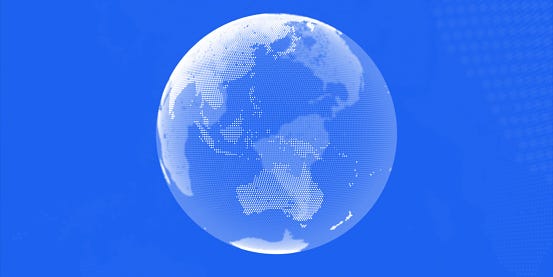Sam Altman may be best known as the CEO of OpenAI, but behind the scenes, he’s been building World, a new social network.
The app is available in over one hundred countries, including the United States, and is used by nearly 25 million humans.
In October, it unveiled its latest version, World 3.0, which it bills as a “Super App” for humans, akin to China’s WeChat or Latin America’s Rappi. It includes a new human-centric version of Apple’s App Store for Mini Apps. World defines these as “everyday apps optimized for real humans.” Anyone can build a Mini App, which run within the World App, and integrates with a user’s World ID — their unique digital code — wallet, and contacts.
Last week, World announced a new “Developer Rewards” pilot program beginning April 1. The program will distribute the equivalent of $300,000, paid in WLD tokens — World’s native digital currency, which now converts to $0.78 per token, according to Coinbase — on a monthly basis to qualifying app developers over a three-month pilot period.
The pilot program follows the launch of “World Build,” an incubator program World introduced in January created in partnership with Friend with Benefits, a social network for crypto’s creative set, web3 platform Alchemy, and crypto-focused investment funds Bain Capital Crypto, Blockchain Capital, and Variant Fund.
The program, which runs from February through May, will include hackathons and retreats and end with a demo day with investors in New York.
One of these developers, Diego Estevez, 24, built a Mini App called Credit that offers instant microcredit to World users in Argentina. The app does not rely on credit scores, collateral, or income verification to give people loans, which start as low as $5 and are capped at $100.
“As they repay, they get to access increasingly larger loans,” Estevez told BI. “ The progression of loans is structured in such a way that you cannot repay a small loan to then default on a greater loan.”
In essence, there’s no way to game Estevez’s system to earn quick money.
Estevez said that close to 100,000 users have downloaded and opened the app since it launched and 15,000 loans have been issued. While Credit is anonymous and doesn’t track how users spend the money, Estevez believes they’re using it for everyday necessities like groceries, transportation, and medicine. He said he knows users have become dependent on it given the onslaught of messages he receives whenever the app goes down.
The sudden success of Credit is a reflection of the realities of the developing world where many people have access to the internet and phone, but no meaningful way to obtain credit. It may also reveal what drives an app ecosystem built on human necessity rather than disposable income.
World aims to grow its network through initiatives like Mini Apps. The millions already using them create “ a virtuous cycle where you can now do more things on the network, and because of that more people join,” Tiago Sada, the chief product officer for Tools for Humanity, the company building Word’s technology, told BI. He noted that Mini Apps have already begun to garner attention from investors.
World’s first goal is to get to 1 billion users. From there it’ll focus on 10 billion, Sada said. Every human may not end up on World, but Sada said the network’s goal is to ensure that everyone at least has the opportunity to register.
World has had its share of struggles. It has butted heads with regulators in countries including Kenya, Spain, and South Korea for its use of biometric data — which it collects through futuristic Orbs that take pictures of humans’ irises. It’s also faced criticism for luring users in developing countries desperate for the WLD grants they receive after signing up.
“To date, the novel technology underpinning World has enabled nearly 12M individuals to securely and anonymously prove their humanness online and to participate in the global digital economy,” a representative for World wrote to BI by email. “Big change is never easy (esp for governments), but we’re working through the challenges and will keep building.”
Sada sees it as the only solution to the AI boom’s existential crisis.
“ We sometimes refer to World as the freedom stack,” he said. It’s anonymous, self-custodial, and lives on users’ phones because “we want to live in a world where people are more free than they are today.”
Read the full article here


